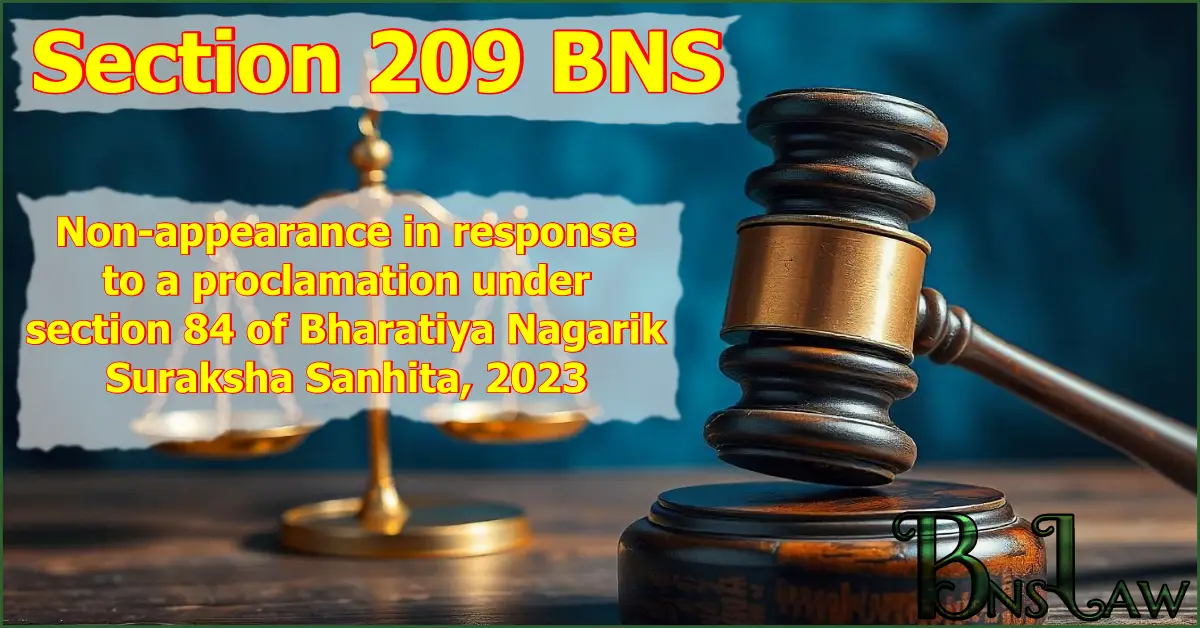Section 209 BNS | BNS 209
Whoever fails to appear at the specified place and the specified time as required by a proclamation published under sub-section (1) of section 84 of the Bharatiya Nagarik Suraksha Sanhita, 2023, shall be punished with imprisonment for a term which may extend to three years, or with fine, or with both, or with community service, and where a declaration has been made under sub-section (4) of that section pronouncing him as a proclaimed offender, he shall be punished with imprisonment for a term which may extend to seven years and shall also be liable to fine.
READ OTHER SECTIONS OF CHAPTER XIII — OF CONTEMPTS OF THE LAWFUL AUTHORITY OF PUBLIC SERVANTS
FAQs of BNS Section 209
-
209 BNS punishment and fine
Punishment and fine under Section 209 of the BNS: Imprisonment for 3 years, or fine, or both, or community service.
In a case where declaration has been made under sub-section (4) of section 84 of this Sanhita pronouncing a person as proclaimed offender: Imprisonment for 7 years and fine.
-
209 BNS cognizable or not
The offence under Section 209 of the BNS is cognizable.
-
209 BNS bailable or not
The offence under Section 209 of the BNS is non-bailable.
-
209 BNS trial court
Offence specified in Section 209 of the BNS is triable by the Magistrate of the first class.
Important Points
- Cognizable Offences: These are offences where a police officer can arrest a person without a warrant.
- Non-Cognizable Offences: These are offences where a police officer cannot arrest a person without a warrant.
- Bailable Offences: These are offences where the accused can get bail from the police station itself. All bailable offences are listed in the First Schedule of the Bharatiya Nagarik Suraksha Sanhita (BNSS).
- Non-Bailable Offences: Offences in which bail is not granted directly from the police station but after hearing the case in the court, the judge decides when bail will be granted. All non-bailable offences are listed in the first schedule of the Bharatiya Nagarik Suraksha Sanhita (BNSS).
- In the above FAQ, “trial court” means the court that has jurisdiction to try the offence.
- In the above FAQ, the expression “Magistrate of the first class” and “Any Magistrate” does not include Executive Magistrates.
Read other Sections of the BNS
Reference Link: New Criminal Laws (BNS), Ministry of Home Affairs







